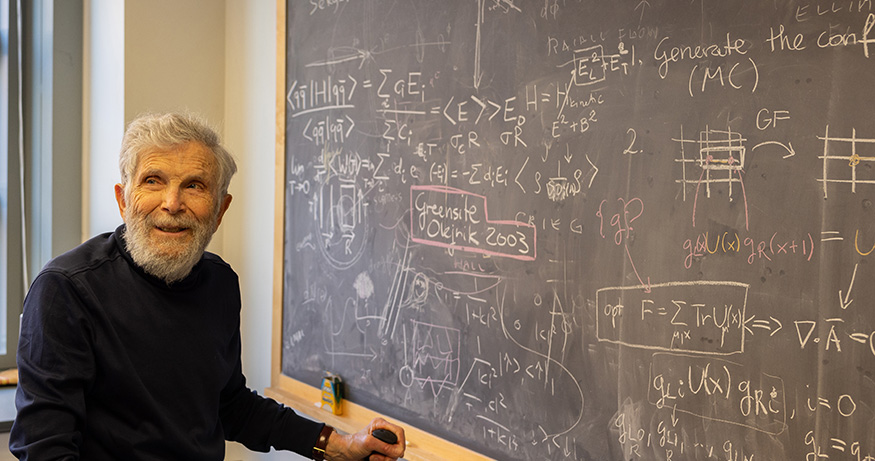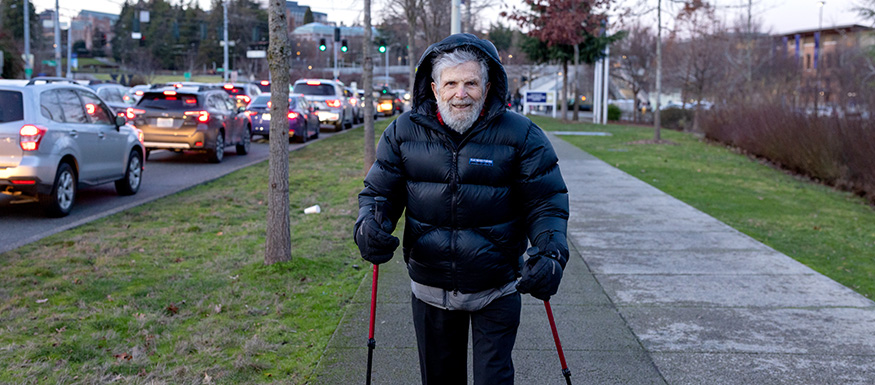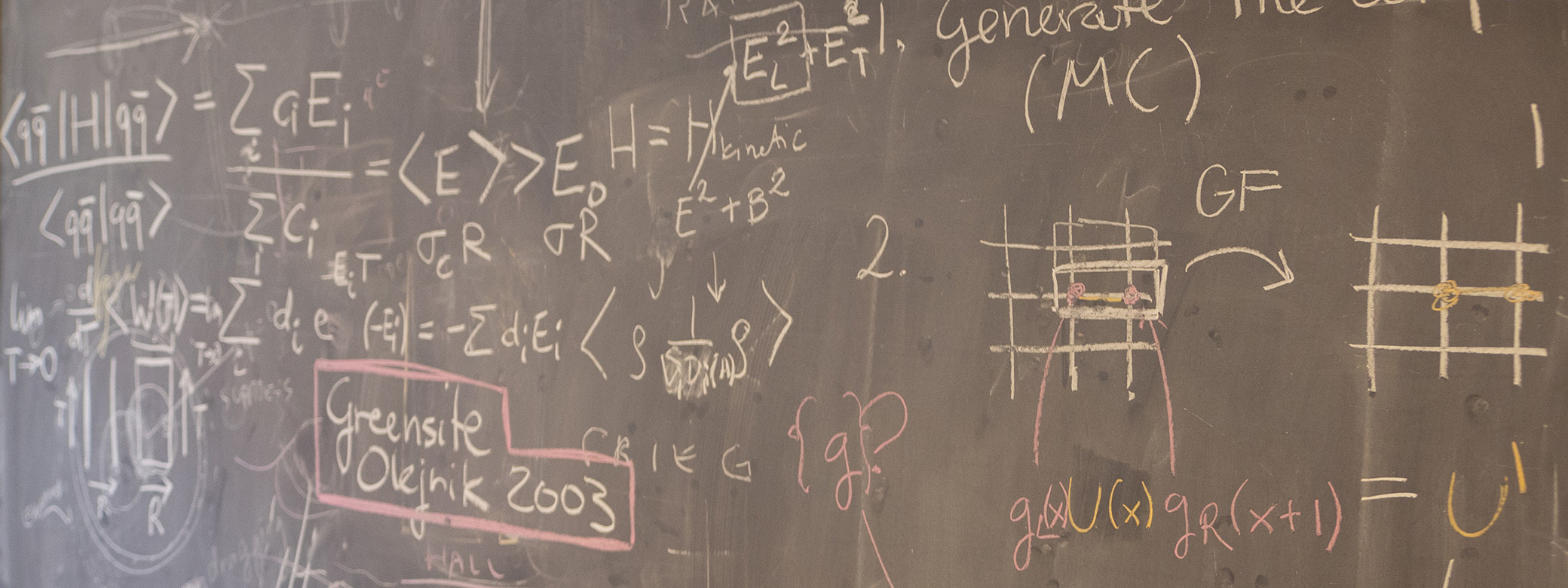
On a crisp October afternoon, Marshall Baker wrapped up a meeting in his University of Washington office after checking the time. He wanted to attend a physics colloquium in a neighboring building that started in ten minutes. He would later walk home, then repeat the mile-long walk to campus the next morning for a weekly theoretical physics seminar.
Did I mention that Baker is 91 years old?
Though he officially retired in 2002, Baker, emeritus professor of physics, has remained committed to physics research. “Being able to stick to something is good in this field, because the questions are long-term questions,” he says. “You’re not going to get a quick answer. You need patience.”
Baker came to physics by way of mathematics. As a Harvard undergrad, he started as a math major. He found that physics helped him understand mathematics, and then he fell in love with physics. He went on to earn a PhD in physics at Harvard and joined the UW Department of Physics in 1962.
As Baker recalls it, he never interviewed for the job. A UW professor contacted him and offered him the position based on the recommendation of a colleague at Stanford University, where Baker had been in a non-tenure-track position. “It doesn’t happen like that anymore,” Baker says. “I was lucky. It fell into my lap.”
Being able to stick to something is good in this field, because the questions are long-term questions. You’re not going to get a quick answer.
Baker was interested in quantum electrodynamics, which focuses on the properties of atoms and molecules. He went on to explore other questions in the area of quantum field theory, particularly quantum chromodynamics, which concerns the interaction of elementary particles called quarks, and the characteristics of gluons emitted by quarks. That research led him to questions about quark confinement and gluon flux tubes that produce that confinement.
When Baker retired at age 70, he saw an opportunity to explore other fields. He spent about six years taking UW courses in biology, biochemistry, immunology, and other topics that interested him, at both the undergraduate and graduate level. “I’d never taken a biology class in my life,” he explains. “It was wonderful to be a student again.”

But he couldn’t stop thinking about the research of a doctoral student he had worked with before retiring. They had collaborated on research papers, but the student left the field of physics after earning his PhD. Baker decided to continue exploring the questions they had once pursued. “That work was the basis, in some sense, of what I’m interested in even now, from a different point of view and with some new collaborators,” he says.
Those new collaborators include physicists from the University of Bari Aldo Moro in Italy, working in the area of lattice gauge theory, a recently developed computation method in quantum field theory. Baker reached out to the physicists in 2015 and developed a working relationship with them over email. In 2018, he traveled to Bari to meet with them in person. He has continued to work with his Italian colleagues and others and has co-authored four papers since 2019, most recently in October 2023.
Baker still has an emeritus office on campus. “Essentially I have the office to myself,” he says. “It’s a big psychological advantage to have that. It makes it much easier for me to come in. The chair of the department, Larry Yaffe, has been very kind. Everyone has been very kind. I think it’s special to be welcomed in this way.”
Baker comes to campus two to three days a week, usually on seminar days, to hear colleagues and graduate students discuss their research. Postdoctoral scholar Sebastian Dawid often speaks with Baker when both are on campus and finds inspiration in his work.
“In addition to numerous significant results he produced, many of the problems he tackled were impossibly hard and do not have clear answers to this day,” Dawid says of Baker. “I believe it requires unwavering academic integrity to faithfully follow one's curiosity in areas so difficult that most people avoid them for the sake of their careers.”
Dawid also describes Baker as a “remarkable listener.” Of their informal chats, he says, “I think we both benefit by discussing research projects, interesting seminars, or challenging problems. We have a friendly relationship that I cherish.”
Baker believes his ability to listen may have improved with age and experience.
“Maybe you listen to people a little bit more,” he says of getting older. “You listen and you’re willing to change your mind. In fact, you feel proud of yourself for changing your mind. You think, ‘After this conversation, I think everything I previously said was wrong. And look at all I’ve learned from that.’”
He smiles, then checks the time. He politely excuses himself. Once again, Marshall Baker has places to be.
More Stories

Bringing Music to Life Through Audio Engineering
UW School of Music alum Andrea Roberts, an audio engineer, has worked with recording artists in a wide range of genres — including Beyoncé.

A Love of Classics and Ballroom
Michael Seguin studied Classics at the UW and now owns Baltimore's Mobtown Ballroom. The two interests, he says, are more connected than they might seem.

A Sports Obsession Inspires a Career
Thuc Nhi Nguyen got her start the UW Daily. Now she's a sports reporter for Los Angeles Times, writing about the Lakers and the Olympics.
